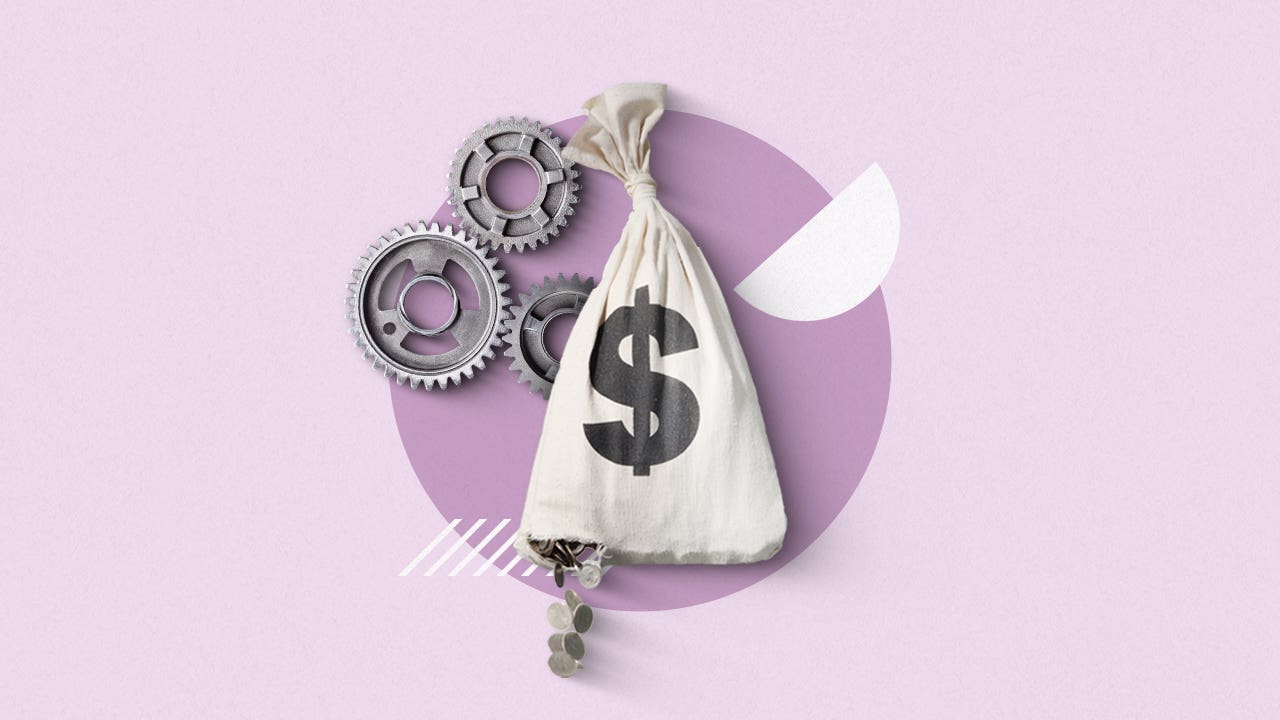What is an unsecured business loan and how does it work?




Key takeaways
- Unsecured business loans are types of business loans that do not require collateral
- Lenders are more selective with which businesses they offer unsecured loans to and may require a personal guarantee or Uniform Commercial Code (UCC) lien
- Unsecured business loans can come in the form of term loans, business lines of credit, invoice factoring, and merchant cash advances
Many lenders require business collateral when you apply for a business loan. If you don’t have collateral though, or you’d prefer not to use assets to secure a loan, you can get an unsecured business loan. You can use this type of loan for various purposes, such as expanding operations, purchasing inventory or covering unexpected expenses.
Several different business loans come without collateral. You should consider all the options before applying to ensure you make the best decision when getting an unsecured business loan.
What is an unsecured business loan?
An unsecured business loan is a type of business loan that doesn’t require any collateral. Collateral is an item of value that you use to secure a loan. Having collateral reassures the lender that you will pay the loan, or it can seize the asset to pay back the loan, should your business default on the payments. In some cases though, you may want to protect your assets and not use them to secure a loan.
Because unsecured business loans have no collateral, the lender takes on more risk when lending money to companies. That’s why some types of unsecured business loans may have strict eligibility requirements or higher interest rates than secured business loans.
How unsecured business loans work
An unsecured business loan works similarly to other types of business loans. You submit an application, wait for the lender to decide, and if you’re approved, you receive the funds and pay the funding back over time.
Since there isn’t any collateral involved, lenders are typically more selective about who they offer unsecured term loans to, especially if you want one with low interest rates. They also tend to ask the business owner to provide a personal guarantee, a promise to pay the loan back out of personal funds if the company defaults on the loan.
Some types of unsecured business loans have more relaxed eligibility requirements and are available to business owners with bad credit. This includes invoice factoring and merchant cash advances. These types of bad credit loans however, come with a heavy cost, including high interest rates and fees.
Some lenders will also require a Uniform Commercial Code (UCC) lien. A UCC lien is a claim against your company’s assets. If your company fails to pay the loan, the lender will come after these assets to recover its losses.
Types of unsecured business loans
There are many different types of unsecured business loans. Term loans and business lines of credit are often considered the best unsecured business loans for business owners with good-to-excellent credit — though it’s possible to find unsecured business loans for bad credit borrowers.
Term loans
With a term loan, you apply for a loan, specifying the amount you’d like to borrow and the reason for getting the loan. If the lender approves the application, it disburses the funds in a lump sum to your bank account. You then repay the loan in regular installments, typically over one to five years.
Term loans are popular if you want to make a specific purchase and pay for it over the long term. You can find both secured and unsecured term loans from different lenders. You’ll need to specify that you want an unsecured term loan when applying.
SBA loans are an example of a term loan. These options provide affordable financing to many types of small businesses, offering low interest rates and long repayment terms. It’s even possible to get unsecured SBA business loans for up to $50,000, though collateral requirements depend on the lender.
Business lines of credit
A business line of credit works like a business credit card, allowing your business to borrow money up to a preset limit. You only pay interest on the outstanding balance and can draw funds from the line of credit multiple times. It’s possible to get an unsecured business line of credit, but maximum loan amounts and interest rates may not be as favorable as secured business lines of credit.
These are popular for businesses that want to have the flexibility to cover unexpected expenses, though the cost of a line of credit can be higher than term loans.
Invoice factoring or financing
Invoice factoring involves selling unpaid invoices to a lender at a discount. That lets you get paid for your invoices right away rather than waiting for your customers to pay you. For example, if you have an outstanding invoice for $5,000, a factoring company may buy it from you, giving you 85 percent of the amount ($4,250) and releasing the rest, minus fees, once the invoice is paid.
Invoice financing also uses unpaid invoices to secure the loan, giving you an advance up to 90 percent of the invoice amount. But instead of selling the invoice to the lender, you collect invoices and repay the lender the loan amount plus fees once your customers pay you.
Invoice financing or factoring can be expensive, but many factoring companies won’t require a personal guarantee or collateral. This is because the loan is secured by the invoices, reassuring the lender that the loan will be taken care of once the invoices are paid.
Merchant cash advances
A merchant cash advance involves getting cash upfront based on your company’s typical sales numbers. You can then use the money to cover unexpected costs or buy inventory. This type of working capital loan is high risk and often used by business owners with bad credit.
You repay merchant cash advances automatically through a percentage of your future sales. These can be a good option to help cover seasonal and other short-term cash issues but can get quite expensive and make your cash flow issues even worse, putting you in a cycle of debt. You may want to use this option in cases of emergency and when you’re confident that you can repay quickly.
Where to get an unsecured business loan
You can find unsecured business loans from two general types of lenders, each with pros and cons.
- Online lenders. These companies include fintech lenders like Fundible. Alternative lenders tend to have quick online applications and funding timelines, making them good for businesses needing quick cash. But they often charge higher rates if your company has less-than-stellar credit.
- Banks and credit unions. These are traditional brick-and-mortar lenders that may also have an online presence. They usually have slower processes and stricter lending requirements but may have unsecured business loans with more favorable interest rates and terms. They’re also good for companies that want a more face-to-face experience.
Alternatives to unsecured business loans
If you don’t think an unsecured business loan is the best fit for your business, there are alternatives to explore.
- Secured business loans: These loans require collateral such as real estate, vehicles or inventory. Because they pose less risk to the lender, you may receive lower interest rates and favorable repayment terms with a secured loan.
- SBA loans: You can get a variety of unsecured and secured loans through the Small Business Administration to use for working capital, equipment, construction projects and more.
- Secured lines of credit: Secured lines of credit may offer easier eligibility requirements, accepting startups and business owners with poor credit.
- Business grants: A business grant awards businesses with money that they do not have to repay or back with business assets. The downside is that grants are highly competitive since many businesses are likely applying for them alongside you.
- Crowdfunding: The crowdfunding option allows businesses to raise capital through public contributions, either as donations or in exchange for rewards or equity.
- Peer-to-peer (P2P) lending: Using a specialized lending platform, businesses connect directly with investors who want to help them fund their endeavors.
- Business credit cards: Secured business credit cards require cash deposits to open the account, and the amount you deposit is usually your credit limit. Both secured and unsecured business credit cards can help you build business credit.
Bottom line
The benefit of unsecured business loans is they can be a great way for companies to borrow money without needing assets to secure the loan. Ifyour business doesn’t have great finances or has poor credit though, a secured loan may be easier to qualify for and more affordable.
Before applying for an unsecured business loan, make sure to shop around and compare multiple offers. If you put in the effort, you can find the best small business loan to help your business achieve its goals.
Frequently asked questions
-
Getting an unsecured business loan can be more difficult than a secured business loan because lenders often have strict eligibility requirements to approve unsecured loans. Lenders want reassurance that you’ll be able to repay the loan even without collateral. These loans pose more risk to the lender since they can’t immediately seize an asset to repay the loan if you default.
-
Unsecured term loan requirements will vary by the lender. For example, banks may require at least two years in business and a credit score of 670 or higher, while online lenders may accept six months in business and a 600 personal credit score. Unsecured loans tend to have stricter requirements than secured loans.
-
It’s possible to get a startup business loan with bad credit and no collateral, though your choices might be limited. You may need to go with a bad credit loan option like invoice factoring or a merchant cash advance. Equipment financing is another form of a business loan that doesn’t require collateral, since the equipment you purchase acts as collateral. Some online lenders offer equipment financing to borrowers with bad credit.
-
Small business loans can be secured or unsecured. Loans that require a business owner to provide collateral are secured business loans. Using assets to secure the loan can help improve your chances of approval and even lead to business loans with lower interest rates. Unsecured business loans don’t require collateral. That puts more risk on the lender, leading to higher rates. Even though you don’t have to provide collateral, many lenders often require business owners to sign a personal guarantee, which puts your business and personal assets at risk if you fail to repay the loan.
Why we ask for feedback Your feedback helps us improve our content and services. It takes less than a minute to complete.
Your responses are anonymous and will only be used for improving our website.
You may also like

What is an equipment loan and how does it work?

What happens if you don’t pay an unsecured business loan?


How to get an unsecured business loan
